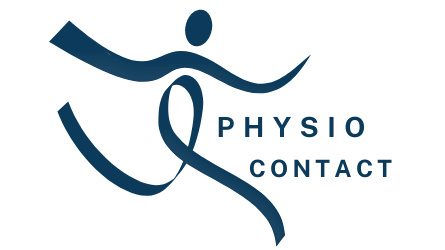As a physiotherapist, I strongly believe that every individual deserves to live their life free from pain and discomfort. It is important for us to understand the common conditions that can be treated with physiotherapy in order to provide our patients with the best possible care.
There are a variety of conditions that can benefit from physiotherapy intervention. From sports injuries and chronic pain to post-surgical rehabilitation and neurological disorders, we as physiotherapists have the knowledge and expertise to help our patients regain mobility and function.
Our goal is not only to treat these conditions but also empower our patients by providing them with tools and techniques they can use on their own to maintain their physical health and well-being.
So if you’re someone who values your freedom of movement, then read ahead to learn more about how physiotherapy could help you achieve just that!
Sports Injuries
As a physiotherapist, I have seen numerous sports injuries over the years. From sprained ankles to torn ACLs, these injuries can be debilitating and prevent athletes from participating in their sport of choice.
Prevention strategies are key when it comes to avoiding these types of injuries. This includes proper warm-up and cool-down techniques, wearing appropriate protective gear, and maintaining good overall physical fitness.
However, if an injury does occur, rehabilitation techniques such as strength training exercises, range-of-motion exercises, and massage therapy can help speed up the healing process and get you back on track faster than just waiting it out.
It’s important to remember that each injury is unique and requires individualized treatment plans tailored specifically to your needs. As a physiotherapist, my goal is not only to treat the injury but also educate my patients on how they can prevent future injuries and maintain optimal health for long-term success both on and off the field.
Chronic Pain Management
As a physiotherapist, one of the most common conditions I see in my patients is chronic pain. While medications and physical therapy can provide some relief, it’s important to address the mind-body connection when managing chronic pain.
Studies have shown that alternative therapies such as yoga, meditation, and acupuncture can be effective in reducing pain levels and improving overall well-being. By focusing on relaxation techniques and mindfulness practices, individuals with chronic pain can learn to manage their symptoms more effectively and regain control over their lives.
As healthcare providers, we must continue to explore all options for our patients’ care, including holistic approaches that address both physical and mental health.
Post-Surgical Rehabilitation
After undergoing surgery, it is important to prioritize post-surgical rehabilitation in order to achieve a successful recovery. The recovery timeline will vary depending on the type of surgery and individual circumstances, but physical therapy exercises can help promote healing and improve function.
As a physiotherapist, I recommend incorporating three main sub-lists into your rehabilitation plan:
- Range of motion exercises – These aim to restore joint mobility and flexibility, which may have been affected by surgery or prolonged periods of immobilization.
- Strengthening exercises – These target specific muscle groups to rebuild strength and endurance lost during the surgical process.
- Cardiovascular exercises – These focus on improving cardiovascular health and overall fitness levels, which can aid in the recovery process as well as prevent future injuries.
It’s important to work with a qualified physiotherapist who can design an appropriate exercise program based on your specific needs and progress you safely through each stage of your recovery journey.
Remember that rehabilitation takes time and patience; pushing too hard or too fast could cause setbacks or even reinjury. By following a comprehensive post-surgical rehabilitation plan, you can regain confidence in your abilities and return to doing what you love without limitations.
Neurological Disorders
As we move on from post-surgical rehabilitation, it’s important to note that physiotherapy treats a wide range of conditions.
Neurological disorders are one such area where physiotherapy can make a significant impact in improving the quality of life for patients.
Patients with neurological disorders may experience difficulties with mobility and balance due to the damage or impairment of the nervous system.
This is where physiotherapists come in – we work with patients to improve their physical abilities through exercises that focus on strengthening muscles, improving coordination, and enhancing overall function.
Balance training and gait analysis are two key components of our treatment plans for patients with neurological disorders.
Through these techniques, we help patients regain control over their movements while also reducing falls risk.
Our goal is always to empower our patients to take charge of their health and live as independently as possible.
Patient Empowerment And Education
When it comes to your health, you are the most important advocate for yourself.
As a physiotherapist, I believe in empowering patients with knowledge and techniques that will help them prevent injuries and take better care of their bodies.
Injury prevention is key to maintaining an active lifestyle, which is why I highly recommend incorporating self-care techniques into your daily routine.
These can include stretching, foam rolling, proper posture habits while sitting or standing, and regular exercise.
To further empower my patients in injury prevention and self-care techniques, I often suggest creating a personalized plan.
This involves identifying areas where they may be at risk for injury (such as poor form during workouts) and developing strategies to address those risks.
It also means setting achievable goals for physical activity and finding ways to incorporate movement into everyday life.
Remember that taking control of your health through proactive injury prevention and self-care is not only beneficial but also liberating.
By investing time in these practices, you are giving yourself the freedom to live an active lifestyle without fear of pain or injury holding you back.
So go ahead and take charge of your well-being – your body will thank you!
Conclusion
As a physiotherapist, I take immense pride in helping people regain their physical strength and mobility. Whether it’s an athlete recovering from a sports injury or someone with chronic pain looking for relief, there are many common conditions that can be treated effectively with physiotherapy.
Sports injuries are one of the most common reasons people seek out our services. From sprains and strains to fractures and dislocations, we help athletes of all levels get back on their feet and return to their sport as quickly and safely as possible.
We also work closely with patients who are managing chronic pain, using a combination of hands-on techniques, exercise therapy, and education to help them achieve long-term relief.
For those who have undergone surgery, we offer post-surgical rehabilitation programs tailored to each individual’s needs.
And for patients with neurological disorders such as stroke or Parkinson’s disease, we use specialized techniques to improve movement and function.
At the heart of everything we do is patient empowerment and education. Our goal is not just to treat your current condition but to give you the tools you need to maintain your health and prevent future injuries or illnesses.
By working together, we can help you live your best life – free from pain and limitations. So if you’re struggling with any of these common conditions or simply want to optimize your physical well-being, don’t hesitate to reach out to us today!











